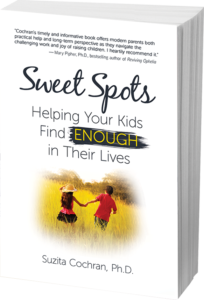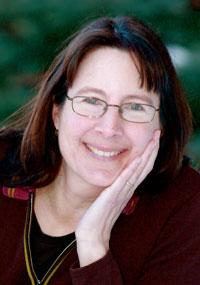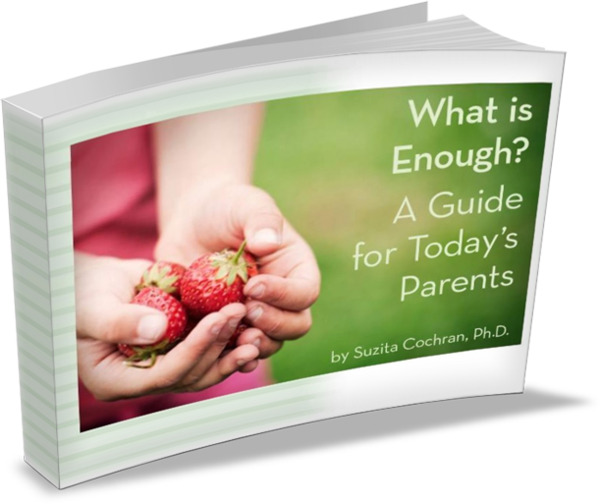My friend Katherine and her husband adopted two foster siblings at ages 1 and 2. It was a big change—going from a 2- to a 4-person family overnight. They had so much to learn about parenting and about these particular children. Like many previously in foster care, these kids had experienced early traumas. I tried to be a sounding board for Katherine when she had so many decisions to make in short order. But I also watched her getting to know her new children, and laying down the foundation from which they’d learn to trust her—doing many of the things that new biological parents do. Only Katherine didn’t have the luxury to move slowly with one child who she’d been with since birth.
Young Childhood
I remember Katherine would try to make things as predictable and understandable as possible for her toddlers—sometimes cutting out photos of things which she was explaining. But over the years, I saw that Katherine’s biggest strength was her patience.
When the kids were in elementary school, it became clear that each had a learning disability, as well as attentional difficulties. However, their learning challenges weren’t as straightforward as they are for some kids—those with dyslexia, for example. It took Katherine years to decipher the cause of the learning problems in each child. During those years Katherine was patient—frustrated at times and tired a lot—but persevering as she consulted various experts to help her understand her children’s struggles.
Adolescence
Now these siblings are adolescents—rarely an easy phase for kids or parents. But I can see how far they have come. It’s probably harder for Katherine and her husband to see this since they’re so close to it all—and the kids are middle-schoolers so some of their positive attributes are buried for now—but they’ve clearly flourished. The kids are interested in the world around them, able to talk comfortably with adults, playful, funny, and kind—and this description is from my kids who babysit them.
Sensitive Children
Recently when my teens were talking about Katherine’s kids, I was reminded of some reading I’d done on sensitive children—kids who are extremely aware of, and affected by their environments. Katherine has at least one and likely two “sensitive children.”
Personally, I describe these kids as the ones parents worry about the most. Researchers who study both children and primates—where some of the work on sensitive kids originated—describe sensitive children as having a genetic make-up that makes them more: anxious, fearful, fussy, whiny, prone to social anxiety, and unfocused.
These are clearly not your mellow babies or exuberant and upbeat toddlers. These are the kids you babysat as a teen, and left their home exhausted because they’d been crabby and fussy, and never settled on any activity for long. They are the kids who don’t transition easily due to overstimulation from their environments. These are the children who are exceedingly sensitive to sounds, or as they get older, offhand comments from other children. And don’t get me started about seeing movies they find scary. Heck, my son Daniel would have nightmares after seeing the “scary book cover at the school book fair.” Yes, I myself am somewhat familiar with sensitive children. I have at least two of them, and possibly three.
In The Confidence Code, authors Katty Kay and Claire Shipman mention that certain kids have a genetic predisposition to environmental sensitivity. They interviewed primate researcher, Steve Suomi, who stated that though “some traits are inherited, it doesn’t mean they can’t be altered.” His work has shown that if you put a naturally anxious and fearful baby rhesus monkey with a supportive foster mother monkey, that baby grows up to be highly social, able to turn to others for help, and often a social group leader.
Orchid Children
This and other research has led scientists to dub these sensitive kids “orchid children.”
According to researchers Bruce Ellis and W. Thomas Boyle, many children are “genetically like dandelions: hardy and able to thrive in various environments.” For years we assumed that non-dandelion children—high-maintenance children—were the weak ones. However, the “orchid theory” suggests that while sensitive “orchid” children may be more challenging to raise, if nurtured well they can excel even beyond their counterparts.
A German study explored this concept in young children. It followed thousands of toddlers considered at risk, due to behaviors such as routine screaming, whining, and difficulty focusing. Researchers then taught their parents how to best work with these challenging kids. All the children were also tested for a dopamine gene which causes high sensitivity to the environment and is linked to ADHD. They found that although the entire group received positive parenting, the children with the sensitivity gene improved twice as much as those without the gene.
Studies now suggest that strong, positive parenting can help sensitive kids throughout childhood. The orchid theory posits that “genetically challenged” children raised with good parents “don’t just turn out fine, they actually excel. They thrive. They become stronger, healthier, and more confident than their peers.” The natural sensitivity in these children makes them sponges in their environments. While they have the potential to soak up “the worst” if they are in bad environments, they also have the potential to absorb “the best” if that’s what they are offered.
As I’ve watched Katherine and her husband parent their kids over the past decade, I now see that I have been observing the orchid theory in action.


 Sweet Spots: Helping Your Kids Find ENOUGH in Their Lives.
Sweet Spots: Helping Your Kids Find ENOUGH in Their Lives.

